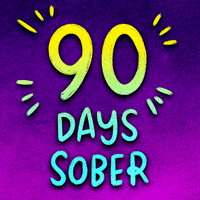
More Than Therapy: Finding My Anchor
"My early sobriety was a learning curve. I acknowledge the role therapy played, but it was peer support that truly anchored me. The shared laughter, vulnerability, and raw honesty within my support group provided a sense of belonging I hadn't found elsewhere. That human connection, not clinical advice, became the key factor that fueled my desire to grow and maintain my recovery." - Rhonda, 5 years clean & sober.




OUR APPROACH
We don’t do boring rehab speeches. We tell it like it is. Peer support isn’t some feel-good fluff—it’s the real deal. Online, in Colusa County, wherever we show up, people helping people actually changes lives. And yeah, that includes yours. We’re here to kick fear, stigma, and BS to the curb—and help you do the same.
ADDICTION
What It Feels Like When Your Brain is Hijacked
Let’s be real: addiction isn’t about laziness or bad morals. It’s your brain getting taken over. Alcohol and drugs hijack your reward system, flooding it with dopamine—the chemical that makes you chase pleasure. Suddenly, your brain is a mess of cravings and impulses, screaming at you even when you know it’s wrecking your life.
You tell yourself, “This is the last time,” but your brain isn’t listening. That voice inside—your willpower—can’t compete with years of chemical rewiring. That’s why quitting isn’t about being “strong enough.” It’s about getting support to fight a battle your brain can’t always win alone.
Here’s the truth: recovery isn’t a straight line. It’s messy, awkward, and sometimes downright frustrating. But it works. Therapy, peer support, medications—they all help your brain relearn how to live without the chaos of addiction. Millions of people have done it. You can too.
No sugarcoating. No moralizing. Just science, grit, and the reality that you can take your life back.
ROBERT DOWNEY JR.
Robert Downey Jr has been sober since July 2003 thanks to the love of his wife, Susan Levin, and friends, particularly Mel Gibson. When Downey tired to return to the acting scene after getting sober, he was a veritable pariah. He was unhireable. He didn’t have a home, and was broke. Mel Gibson put a roof over his head, and cast Downey in a role he originally intended for himself in 2003, The Singing Detective. Downey was later cast in the iconic role of Ironman in 2006.





Describes the NA program, and how it works. It includes the NA Twelve Steps and Twelve Traditions, as well as many personal stories of men and women who have found freedom from addiction through Narcotics Anonymous.
Page Visitors: 50,000+
Since 2020 this 'single' resource page has welcomed over 50,000 people, from 50 states and 12 nations.
How to Stay Sober During a Zombie Apocalypse
2028: Zombies everywhere! Luckily, this guide covers the essentials — like outrunning your fittest friend, navagating support groups (and zombie sponsors), and keeping your home free of the walking dead.






















.jpg)


